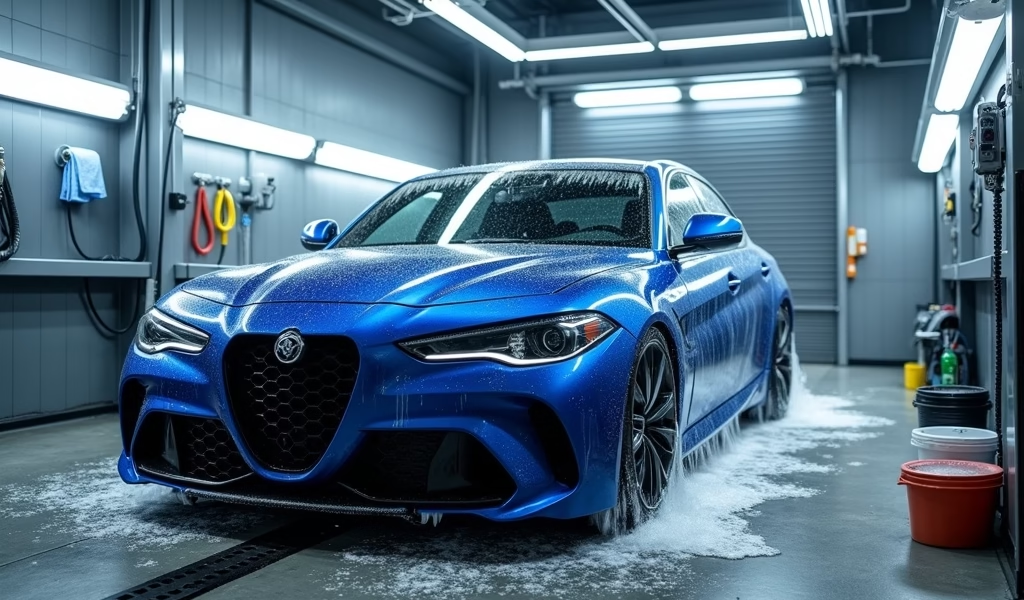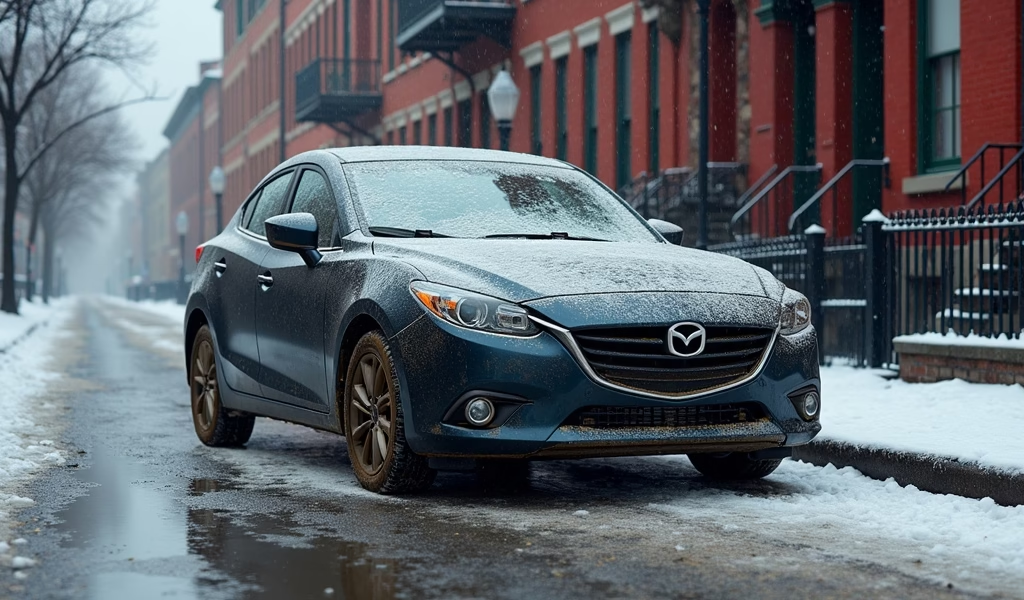Overview
This guide to Boston car washing highlights the importance of regular professional cleaning to protect vehicles from seasonal challenges including winter road salt, coastal air, and environmental contaminants that can cause premature damage. It provides specific recommendations for top car wash locations across Boston neighborhoods, seasonal washing strategies, comparisons between DIY and professional services, eco-friendly options, and post-wash maintenance tips to extend vehicle longevity in New England’s harsh climate.
Table of Contents
- Introduction to Boston Car Wash Excellence
- Why Professional Car Washing Matters in Boston
- Top Car Wash Locations in Boston
- Seasonal Car Washing Tips for Boston Weather
- DIY vs. Professional: What’s Best for Your Vehicle
- Eco-Friendly Car Wash Options in Boston
- Post-Wash Maintenance Tips
- Conclusion
- Frequently Asked Questions
Introduction to Boston Car Wash Excellence
Ever noticed how a freshly washed car seems to purr more contentedly down Commonwealth Avenue? There’s something magical about the gleam of clean metal under Boston’s fickle sunlight. As a mechanic who’s spent two decades watching road grime eat away at beautiful vehicles, I can tell you that finding the best Boston car wash isn’t just about aesthetics—it’s about preserving your investment in the face of New England’s challenging elements.
Boston throws everything at your vehicle—coastal salt air, winter road salt, spring pollen, summer construction dust, and those infamous fall sap drippings from the city’s beautiful maples. Each season presents unique challenges that can slowly degrade your vehicle’s finish and undercarriage if left unchecked.
Have you ever wondered why some cars still look showroom-fresh after years on Boston roads while others quickly lose their luster? The difference often comes down to regular, quality washing routines. Throughout this guide, I’ll share professional insights that go beyond the basic “soap and water” approach, helping you navigate Boston’s car wash scene like a seasoned pro.
Why Professional Car Washing Matters in Boston
Picture this: It’s February in Boston, temperatures hovering around freezing, and your car resembles a salt-encrusted submarine more than a road vehicle. This isn’t just unsightly—it’s potentially damaging. Professional car washes offer specialized equipment and techniques that address Boston’s unique environmental challenges in ways that your driveway bucket-wash simply cannot.
Boston’s proximity to the ocean means your vehicle is constantly bombarded with salt-laden air. Add to this the heavy application of road salt during our notorious winters, and you’ve got a recipe for accelerated rust and corrosion. Consumer Reports studies show that vehicles regularly washed during winter months can last substantially longer than those that aren’t.
But not all car washes are created equal. The best Boston car wash facilities feature undercarriage cleaning—critical for removing hidden salt deposits that cause frame damage. They also use appropriate water pressure and pH-balanced soaps that won’t strip your car’s protective clear coat.
Have you inspected the hidden areas of your car lately? Those wheel wells, door jambs, and undercarriage areas hold moisture and contaminants that can cause thousands in damage if neglected. Professional establishments target these trouble spots that DIY washing often misses.
I’ve seen countless vehicles roll into my shop with premature rust issues that could have been prevented with regular professional washing. When you consider that body and frame repairs often start at several thousand dollars, that $20-30 monthly investment in quality car washes suddenly seems like remarkably cheap insurance.

Top Car Wash Locations in Boston
Boston’s sprawling layout means your best car wash option often depends on your neighborhood. Let me guide you through some standout locations that consistently deliver excellence across the city’s diverse areas.
Back Bay and Downtown
ScrubaDub Auto Wash Center on Commonwealth Avenue remains a gold standard for downtown drivers. Their “Super Wash” package includes the crucial undercarriage flush that’s non-negotiable during Boston winters. What separates them from competitors is their attention to those hard-to-reach areas where damaging salt accumulates.
For busy professionals, Allston Car Wash offers exceptional detailing services with convenient appointment scheduling. Their hand-dry finish prevents those annoying water spots that appear when air-drying in Boston’s mineral-rich water.
Cambridge and Somerville
Cambridge’s Squeaky Clean Car Wash deserves mention for their remarkable eco-friendly approach without sacrificing cleaning power. Their water reclamation system addresses environmental concerns while still delivering a thorough clean that handles Somerville’s notoriously salty winter roads.
Remember how New York car washes have embraced technology? Boston’s following suit with Belmont Car Wash’s app-based rewards system that tracks your visits and offers seasonal promotions when your vehicle needs protection most.
South Boston and Dorchester
Waves Car Wash in South Boston has earned a devoted following for their exceptional customer service and consistent results. Their premium ceramic coating service provides longer-lasting protection against Boston’s coastal air.
Morrissey Boulevard’s Expressway Motors Car Wash deserves recognition for their impressive attention to interior cleaning. After all, what good is a gleaming exterior if you’re sitting in a salt-stained cabin? Their multi-step interior process handles salt residue tracked in on winter boots without damaging delicate upholstery.
Seasonal Car Washing Tips for Boston Weather
Boston’s dramatic seasonal shifts demand an adaptive approach to car washing. Let’s break down how to adjust your routine as the New England calendar turns.
Winter Washing Wisdom
When snowbanks tower and temperatures plummet, many Bostonians skip washing altogether—this is a costly mistake. During winter months, increase your wash frequency to every 7-10 days, especially after major snowstorms when roads are heavily salted.
Choose days when temperatures reach at least 40°F, as washing during extreme cold can lead to frozen doors and locks. The best Boston car wash facilities have heating elements in their drying systems to prevent this problem.
Look for washes offering hot wax applications in winter. This extra layer helps repel salt spray and prevents it from bonding to your clear coat. I’ve seen firsthand how this simple step can preserve paint integrity through Boston’s harshest months.
Spring Cleaning Strategy
As Boston emerges from winter’s grip, pollen becomes your new adversary. This fine yellow dust isn’t just annoying—it’s acidic enough to etch into your clear coat if left baking in the spring sun.
April through June calls for weekly washing, with special attention to your car’s horizontal surfaces where pollen accumulates. Consider treatments that remove embedded winter salt residue from carpet and upholstery. This research on road salt persistence shows salt compounds can remain active for months after winter ends.
Similar to how Washington state residents handle rain, Bostonians should focus on thorough drying during spring’s frequent showers. Water spots left by springtime drizzle can become permanent blemishes if regularly ignored.
Summer Protection Protocols
Summer in Boston brings construction dust, tree sap, and bird droppings—all highly damaging to automotive paint. Washing every two weeks is sufficient, but prompt removal of tree sap and bird droppings is critical, regardless of schedule.
Consider a quality hand wax application at the beginning of summer. This provides UV protection for paint exposed to Boston’s increasingly intense summer sun. The investment pays dividends in preserved paint depth and clarity.
Fall Maintenance Focus
As Boston’s magnificent maples turn, they shower vehicles with sap and acidic leaves. Increase washing frequency to every 10 days during peak foliage, and never let fallen leaves sit on your vehicle overnight—they can quickly stain both paint and glass.
Use this season to prepare for winter with a thorough detailing that includes protective coatings. Professional-grade sealants applied in autumn can provide a defensive barrier that lasts through winter’s worst assaults.
DIY vs. Professional: What’s Best for Your Vehicle
I’ve seen the pride on a car owner’s face after spending Sunday afternoon lovingly washing their vehicle by hand—and I’ve also seen the unintentional damage that well-intentioned DIY washing can cause. Let’s honestly assess when to wash at home and when to trust the professionals.
When DIY Makes Sense
For light maintenance washing during mild weather, a careful home wash can be effective. If you’re going the DIY route, invest in proper supplies: automotive-specific soap (never dish detergent, which strips wax), a proper wash mitt (not a sponge, which can trap particles that scratch paint), and separate buckets for washing and rinsing.
The two-bucket method—one with soapy water, one with clean rinse water—drastically reduces the risk of scratching. Always wash from the top down, rinsing frequently, and work in the shade to prevent soap from drying on the surface.
For those living in apartments or condos without access to outdoor water, Boston has several self-service wash bays that provide professional-grade equipment at reasonable prices. These represent an excellent middle ground between full DIY and full-service options.
When Professionals Are Worth Every Penny
After winter storms, always choose professional facilities. Their high-pressure undercarriage cleaning reaches areas home washing simply cannot. The salt removal from these hidden areas can literally add years to your vehicle’s structural integrity.
Professional washing also makes sense when dealing with stubborn contaminants like tree sap, industrial fallout, or bird droppings that have had time to set. These require specialized cleaners and techniques that won’t damage your finish.
Boston’s water quality varies by neighborhood, but generally contains minerals that can spot and streak when air-dried. Professional facilities use filtered water and hand-drying techniques that eliminate this issue entirely.
Remember how Philadelphia’s premier car washes offer paint correction services? Several Boston establishments provide similar professional polishing that can remove minor scratches and restore gloss that no DIY method can match.

Eco-Friendly Car Wash Options in Boston
Boston’s environmental consciousness has transformed its car wash landscape. The Charles River and Boston Harbor deserve protection from the chemicals and contaminants that vehicle washing produces. Fortunately, you can keep your car clean while keeping your environmental footprint small.
Water Conservation Champions
Did you know that home washing typically uses 80-140 gallons of water per vehicle, while modern commercial car washes often use less than 35 gallons? Boston’s leading eco-friendly washes employ water reclamation systems that filter and reuse water, dramatically reducing consumption.
Aqua Sonic in Cambridge stands out for their 85% water reclamation rate—among the highest in New England. Their multi-stage filtration removes contaminants before water returns to the municipal system, preventing harmful chemicals from reaching waterways.
For the environmentally conscious Bostonian, these water-saving facilities offer guilt-free cleaning that actually uses fewer resources than home washing. That’s a win for both your vehicle and our precious local ecosystems.
Biodegradable Cleaning Solutions
Leading Boston car washes have embraced plant-based, biodegradable soaps and cleaning agents that break down harmlessly after use. These products clean effectively without the harsh surfactants that can damage aquatic ecosystems.
Green Clean Auto Spa in Brookline has pioneered the use of steam cleaning technology that requires minimal chemical intervention. Their approach reduces both water usage and chemical runoff while still removing stubborn road grime effectively.
When evaluating a car wash’s environmental credentials, look for certification from water conservation organizations or participation in the WaterSavers® program, which sets strict standards for responsible water use in the industry.
Post-Wash Maintenance Tips
The moments after a car wash are golden opportunities for extending your vehicle’s protection against Boston’s elements. A few simple habits can dramatically extend the benefits of even the most basic wash.
Quick-Detail Spray: Your Secret Weapon
Keep a quality quick-detail spray in your trunk for spot cleaning between washes. These products are perfect for removing bird droppings, tree sap, or pollen before they can bond to your paint. For Boston drivers, this can be particularly valuable during spring pollen season or fall when sap is abundant.
Apply quick-detail products using clean microfiber cloths, never paper towels or household rags which can introduce scratches. A gentle mist and light wipe is all it takes to maintain that just-washed appearance between professional cleanings.
Interior Protection Practices
Boston’s seasonal extremes can wreak havoc on interiors. After washing, apply a UV protectant to your dashboard and trim to prevent cracking and fading during summer months. For leather surfaces, regular conditioning prevents the drying and cracking that Boston’s winter heating systems can cause.
Consider keeping floor mat covers for snowy days. These disposable protectors prevent salt-laden slush from saturating your carpet and causing permanent staining. Remove and dispose of them after each winter drive to keep interiors fresh.
Wax and Sealant Maintenance
Professional wax applications typically last 2-3 months in Boston’s climate. Between these applications, spray waxes can provide a protective boost without the full investment of time or money. After washing, a quick spray wax application takes just minutes but adds valuable protection.
Test your wax protection monthly using the “beading test”—if water forms tight beads on the surface, your protection remains intact. When water begins to sheet rather than bead, it’s time for reapplication.
For Boston vehicles, ceramic coatings have become increasingly popular for their longevity and superior protection. While more expensive initially, these professional-applied coatings can last 1-5 years with proper maintenance and offer exceptional protection against road salt and environmental contaminants.
Conclusion
Navigating Boston’s car wash landscape might seem trivial compared to navigating its notorious traffic, but the impact on your vehicle’s longevity is anything but small. The best Boston car wash isn’t necessarily the most expensive or the closest to your home—it’s the one that addresses your specific vehicle’s needs against our unique New England challenges.
Remember that washing isn’t merely cosmetic—it’s preventative maintenance as critical as oil changes or tire rotations, especially in a coastal city with harsh winters. The small investment in regular, quality washing pays tremendous dividends in preserved value and reduced repair costs.
As you travel through Boston’s diverse neighborhoods, from the salt-laden air of the waterfront to the tree-lined streets of Jamaica Plain, your washing routine should adapt accordingly. Listen to your vehicle and observe how it responds to different washing approaches.
Whether you choose the convenience of drive-through facilities, the personalized attention of hand-wash establishments, or the satisfaction of careful DIY washing, consistency remains your greatest ally. A regular schedule, adjusted for seasonal demands, will keep your vehicle looking its best while protecting it from Boston’s challenging elements.
Your car deserves the same care and expertise you’d give any valuable investment. With these professional insights and local recommendations, you’re now equipped to make informed decisions that will keep your vehicle looking showroom-fresh despite everything Boston’s weather can throw at it.
Frequently Asked Questions
How often should I wash my car in Boston winters?
Every 7-10 days during winter, particularly after snowstorms when roads are heavily salted. Pay special attention to undercarriage cleaning to prevent salt-related corrosion.
Are touchless car washes better than brush washes?
Touchless washes are gentler on paint but may not remove stubborn salt and grime as effectively. Brush washes provide deeper cleaning but carry a slightly higher risk of minor scratching.
What’s the best time of day to wash my car in Boston?
Mid-morning is ideal, especially in winter when temperatures are rising. Avoid washing when temperatures are below freezing or during peak sun exposure in summer.
How can I prevent water spots after washing?
Use a silicone water blade followed by microfiber towels for thorough drying. Alternatively, choose professional washes that offer hand-drying services to eliminate spotting.
Are monthly unlimited wash memberships worth it in Boston?
Absolutely, especially during winter and pollen seasons when washing frequency should increase. Most packages pay for themselves with just 2-3 washes per month.

